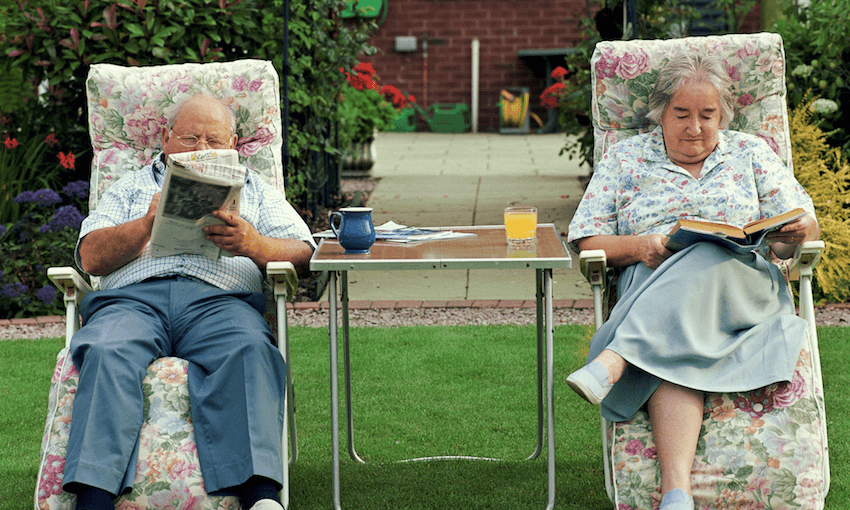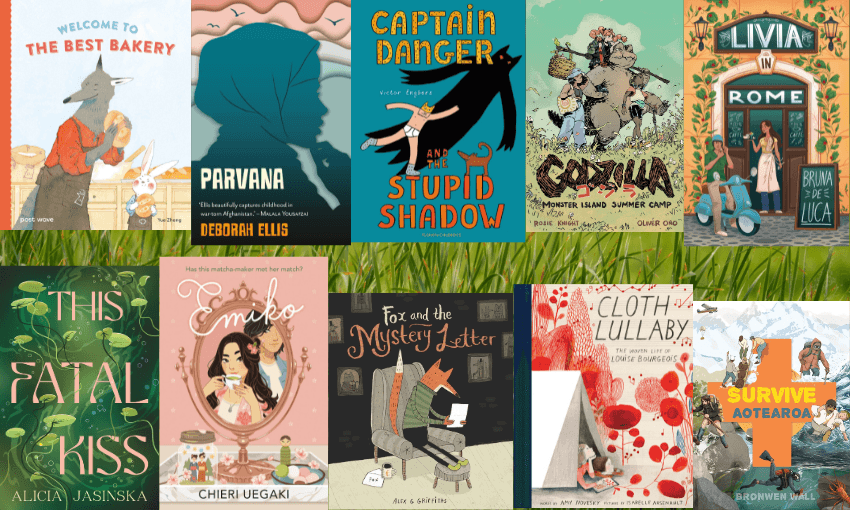The week’s bigget selling books at the Unity stores in Willis St, Wellington and High St, Auckland.
WELLINGTON UNITY
1 The Subtle Art of Not Giving a Fuck by Mark Manson (Macmillan, $35)
Wellington succumbs to the lure of Manson’s liberating advice. We blame John Summers.
2 Warlight by Michael Ondaatje (Jonathan Cape, $35)
“For Ondaatje fans, it’s a typically rich mixture: fascinating facts, an atmospheric setting, a satisfyingly complex plot, authentic observation and some literary smoke and mirrors”: Charlotte Grimshaw, the Listener.
3 Less by Andrew Sean Greer (Little Brown, $25)
Winner of the 2018 Pulitzer Prize for fiction.
4 Calypso by David Sedaris (Little Brown, $35)
“David Sedaris is a very naughty boy. He jokes about cancer and suicide. He tells long, explicit stories about bowel movements, and subjects his long-suffering long-term partner, Hugh, to having many of their private moments made public, even though Hugh (as we learn in a revealing quip about their sex life) won’t even pee in front of him after decades of cohabitation”: The Times of London.
5 Clock Dance by Anne Tyler (Chatto & Windus, $37)
Feel-good novel set in California, Arizona and Baltimore.
6 Poūkahangatus by Tayi Tibble (Victoria University Press, $20)
In the 1960s an Influx of Māori Women
Move to Tinakori Road in their printed mini dresses.
Grow flowers on white stone rooftops to put in their honeycomb vases.
Dust the pussy-shaped ashtray their husbands bought on vacation in Sydney…
7 Flights by Olga Tokarczuk (Jonathan Cape, $35)
Bieguni to książka odważna, w której Olga Tokarczuk opowiada o sobie i o swoim widzeniu świata.
8 Home Fire by Kamila Shamsie (Bloomsbury, $22)
Winner of the UK 2018 Women’s Prize for Fiction.
9 Bearskin by James A McLaughlin (HarperCollins, $35)
A fugitive from a Mexican cartel takes refuge in a forest preserve in the wilds of Virginia.
10 So Much Life Left Over by Louis De Bernieres (Harvill Secker, $37)
Rosie and Daniel move to Ceylon with their daughter in the 1920s and try to rekindle a marriage that gets colder every day.
AUCKLAND UNITY
1 Warlight: A Novel by Michael Ondaatje (Jonathan Cape, $35)
2 Less by Andrew Sean Greer (Abacus, $25)
3 The Subtle Art of Not Giving a Fuck by Mark Manson (MacMillan, $35)
4 From the Corner of the Oval Office: One Woman’s True Story of Her Accidental Career in the Obama White House by Beck Dorey-Stein (Bantam, $38)
“The memoir of a twenty-something stenographer who witnessed six years of the Obama Presidency…As a White House stenographer, she’s told she must be ‘discreet and neat – like a librarian or a well-paid prostitute’, and ‘exude femininity in a strictly non-sexual way’. There is to be ‘no hanky-panky in the workplace – or anywhere, ever’ and ‘above all else, keep the secrets to yourself’. But every rule is broken with minimal discretion, femininity exudes in waves, and hanky-panky comes in abundance“: Chloe Blades, the Spinoff Review of Books.
5 Cost of Living by Deborah Levy (Hamish Hamilton, $35)
“‘Feminist manifesto’ trumpet the reviewers of Levy’s book, but thank God it isn’t really – or at least, not in the current, conventionally trendy sense. I am wary of reading any more feminist manifestos these days because they are very exhausting…Levy’s vulnerability and uncertainty makes her writing so bold and endearing to read”: Charlotte Graham-McLay, the Spinoff Review of Books.
6 The 104-Storey Treehouse by Andy Griffiths & Terry Denton (Pan UK, $18)
Storey telling lol.
7 Asymmetry by Lisa Halliday (Granta UK, $33)
Stephanie Johnson’s review of this internationally acclaimed novel will appear in the Spinoff Review of Books next week or the week after.
8 Pamper Me To Hell And Back by Hera Lindsay Bird (Smith Doorstep, $20)
so what if I love you so much I am becoming stupid
my heart melting like red candles on Satan’s birthday cake…
9 So Much Life Left Over by Louis De Bernieres (Harvill Secker, $37 )
10 Mind That Child: A Medical Memoir by Simon Rowley (Penguin, $38)
A doctor’s story, as told to Stuff hack Adam Dudding.
The Spinoff Review of Books is proudly brought to you by Unity Books.



